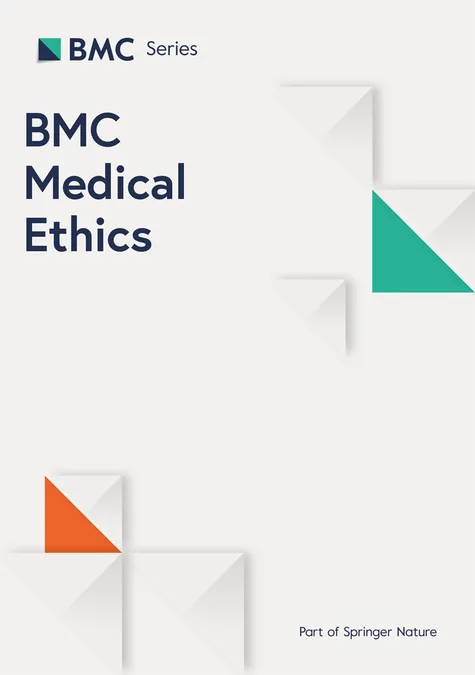
Life, Death, and Hope: Long-Term HIV Survivors Rally for a Cure at the End of Life
2025-08-23
Author: Arjun
Transforming HIV: From Fatality to Manageable Condition
In the mid-1990s, safe and effective antiretroviral therapy (ART) revolutionized the deadly face of HIV, converting it from a terminal illness into a manageable chronic condition. Yet, despite this progress, a cure still eludes us. For those diagnosed before ART’s widespread availability, particularly long-term survivors (LTS), the quest for a cure is not just scientific but deeply personal.
The Personal Journey of Long-Term Survivors
Having lived through the HIV epidemic's darkest days, these survivors experienced immense loss, facing their own mortality when effective treatment was nonexistent. Many participated in early trials of experimental therapies, driven by desperation to stay alive. Today, they seek to contribute their invaluable experiences to the ongoing fight for an HIV cure.
The Push for Innovative End-of-Life Research
Research into potential HIV cures has gained momentum, particularly exploring interventional strategies at the end of life (EOL). While traditional studies focus on healthy volunteers, the unique experiences of LTS provide critical insights into the virus' persistence in the body. Despite the risks involved, there is growing enthusiasm to investigate interventional options for those nearing the end of life.
The Ethics of Interventional Research: A Balancing Act
As exciting as it sounds, moving forward with interventional trials at the EOL demands careful ethical consideration. LTS have lived with HIV for decades and face complex medical and social challenges, including stigma and aging-related health issues. Their perspectives will shape guidelines, ensuring that research remains inclusive and ethically sound.
Navigating the Challenges of the End-of-Life Context
EOL research is often perceived as an opportunity to gain crucial scientific data, especially regarding HIV reservoirs in the body. Unlike previous observational studies, there’s potential for experimental trials to yield groundbreaking findings on viral elimination.
Exploring Long-Term Survivors' Views on HIV Cure Strategies
LTS view curative strategies as a blend of risks and feasibility. Some advocate for latency-reversing agents (LRAs), while others suggest block-and-lock techniques to suppress HIV indefinitely. Immune therapies are gaining traction for their potential to restore the body’s defenses against the virus, although concerns linger about their efficacy in older populations.
End-of-Life Decisions: The Weight of Participation
The acceptability of analytical treatment interruptions (ATIs), sometimes necessary to evaluate new treatments, needs careful exploration. Participants grapple with the idea of pausing ART, weighing their personal health against their desire to contribute to research. For many, the opportunity to advance science outweighs the risks.
A Powerful Collective Voice
A recent qualitative study involving 16 long-term survivors revealed the strong desire to see their contributions to research help future generations. Many expressed feelings of empowerment through their potential participation in experimental therapies, highlighting autonomy in their healthcare decisions even at the end of life.
The Future of HIV Cure Research: Patient-Centered and Ethical
Effective interventional research requires a delicate balance of autonomy, informed consent, and ethical safeguards. Recognizing that older participants may be expelled from research trials, the voices of LTS are crucial for shaping future studies that are ethical and sensitive to their unique circumstances.
Conclusion: On the Frontier of Hope
The pursuit of an HIV cure is not just an academic undertaking; it’s a lifeline for many. As long-term survivors courageously offer their bodies and experiences to research, their voices should resonate in every step forward. Their altruism, desire for autonomy, and commitment to scientific advancement blaze the trail for future discoveries in HIV treatment and possibly, a cure.

 Brasil (PT)
Brasil (PT)
 Canada (EN)
Canada (EN)
 Chile (ES)
Chile (ES)
 Česko (CS)
Česko (CS)
 대한민국 (KO)
대한민국 (KO)
 España (ES)
España (ES)
 France (FR)
France (FR)
 Hong Kong (EN)
Hong Kong (EN)
 Italia (IT)
Italia (IT)
 日本 (JA)
日本 (JA)
 Magyarország (HU)
Magyarország (HU)
 Norge (NO)
Norge (NO)
 Polska (PL)
Polska (PL)
 Schweiz (DE)
Schweiz (DE)
 Singapore (EN)
Singapore (EN)
 Sverige (SV)
Sverige (SV)
 Suomi (FI)
Suomi (FI)
 Türkiye (TR)
Türkiye (TR)
 الإمارات العربية المتحدة (AR)
الإمارات العربية المتحدة (AR)